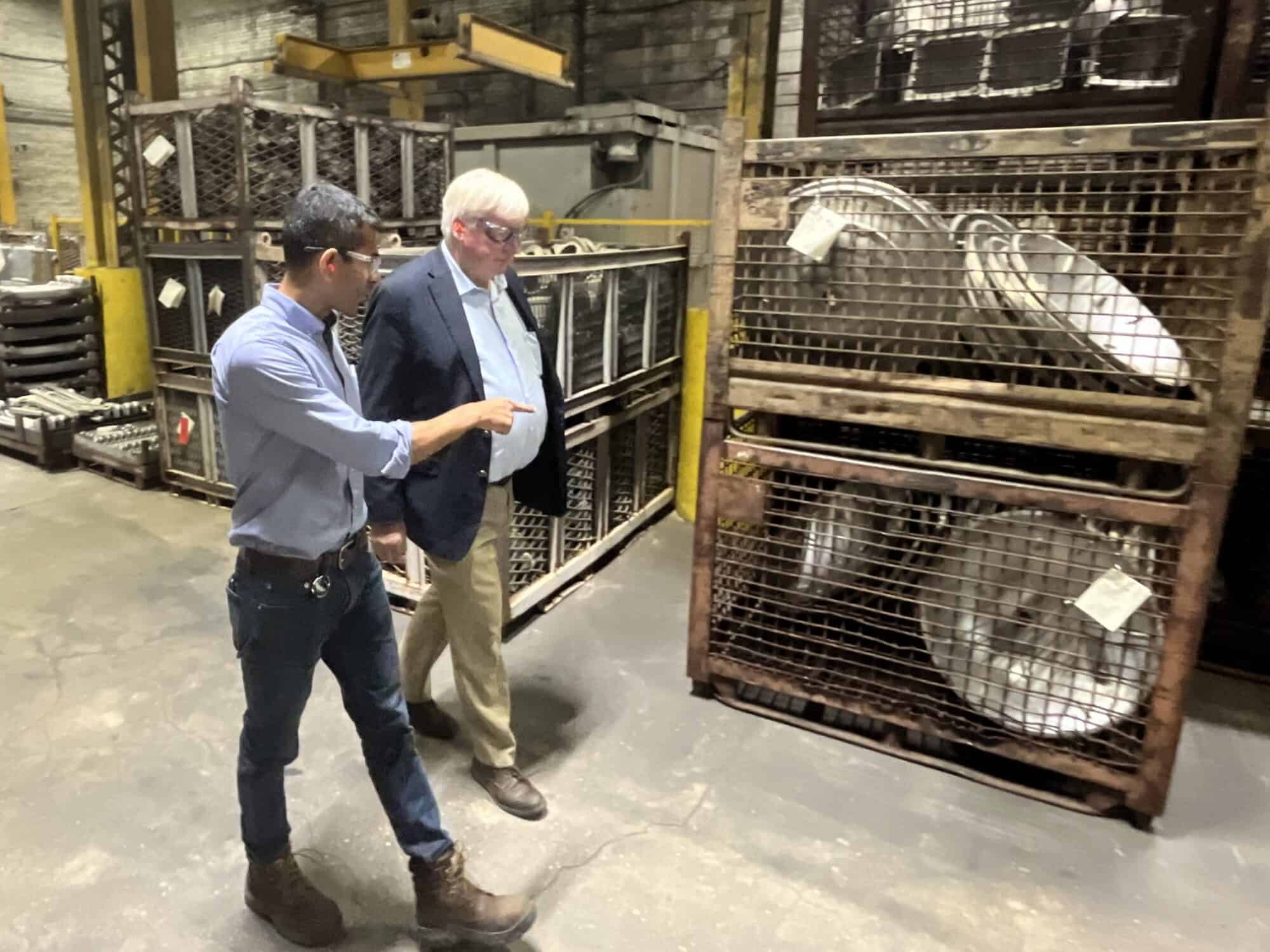Rep. Grothman Talks R&D, Taxes at Wisconsin Aluminum Foundry

Rep. Glenn Grothman (R-WI) visited Wisconsin Aluminum Foundry in Manitowoc, Wisconsin, as part of a series of facility visits from key members of Congress organized by the NAM. Rep. Grothman, representing a district with one of the largest percentages of its workforce employed in manufacturing, emphasized the importance of key tax policies that keep manufacturers competitive on a global scale.
During the visit, Rep. Grothman toured the facility with Wisconsin Aluminum Foundry CEO Sachin Shivaram and held a roundtable discussion with company and union leadership. Representatives from Wisconsin Manufacturers & Commerce also participated in discussions about the challenges facing manufacturers.
Innovation and R&D: Shivaram showcased the Foundry’s advanced aluminum and bronze casting capabilities during the tour. He also expressed concern about changes in R&D tax treatment, which have increased the cost of innovation.
- “R&D is essential to the future of our business,” said Shivaram, stressing that restoring full R&D expensing is crucial for manufacturers like Wisconsin Aluminum Foundry. With the expiration of first-year R&D expensing in 2022, the burden of financing R&D has become a major obstacle for small and medium-sized manufacturers.
- Rep. Grothman, who strongly supports restoring full R&D expensing, said, “Manufacturers need every incentive to innovate and grow. If we want to maintain our competitive edge, we need to ensure that tax policy encourages, not discourages, investment in R&D.”
Preserving tax reforms: The roundtable addressed the importance of preserving the 2017 Tax Cuts and Jobs Act, which benefited manufacturers by lowering the corporate tax rate and providing a 20% pass-through deduction for small businesses. These provisions are set to expire in 2025, creating uncertainty for manufacturers.
- Rep. Grothman pointed to Wisconsin’s manufacturing and agriculture credit as a model for federal tax policy going forward. The MAC, which substantially reduces state taxes on manufacturing income, has proven effective in supporting Wisconsin’s manufacturers.
- “We should look at expanding these kinds of targeted incentives nationwide,” Rep. Grothman said, noting that a similar approach at the federal level could bolster U.S. manufacturing and global competitiveness.
The local view: WMC President and CEO Kurt Bauer echoed the concerns about the expiration of the 2017 tax reforms.
- “If these tax provisions are allowed to expire, it would put significant strain on Wisconsin’s manufacturers,” Bauer said. “The ability to reinvest in equipment, innovation and workers is crucial for maintaining our global competitiveness, and losing these tax incentives would make that much harder.”
Workforce development: The roundtable also covered workforce development, a critical issue for an industry facing a shortage of skilled workers.
- Shivaram, who chairs the Governor’s Council on Workforce Investment, stressed the importance of expanding access to skills-based education and apprenticeship programs to meet the needs of modern manufacturing. “We need policies that help us train and retain the workforce of the future,” he said.
- Rep. Grothman echoed this sentiment, pledging to support federal workforce development initiatives that prepare workers for careers in advanced manufacturing. “A skilled labor force is the foundation of manufacturing’s future,” he said.
Closing thoughts: “It is critical that tax policy continue to support manufacturers, who are the backbone of our economy,” said Rep. Grothman. “If we allow tax reform to expire, it would result in devastating tax increases—stalling job creation and innovation. It’s on us in Congress to work together to preserve tax reform and encourage investment, protect jobs and keep American manufacturers competitive on the global stage.”
